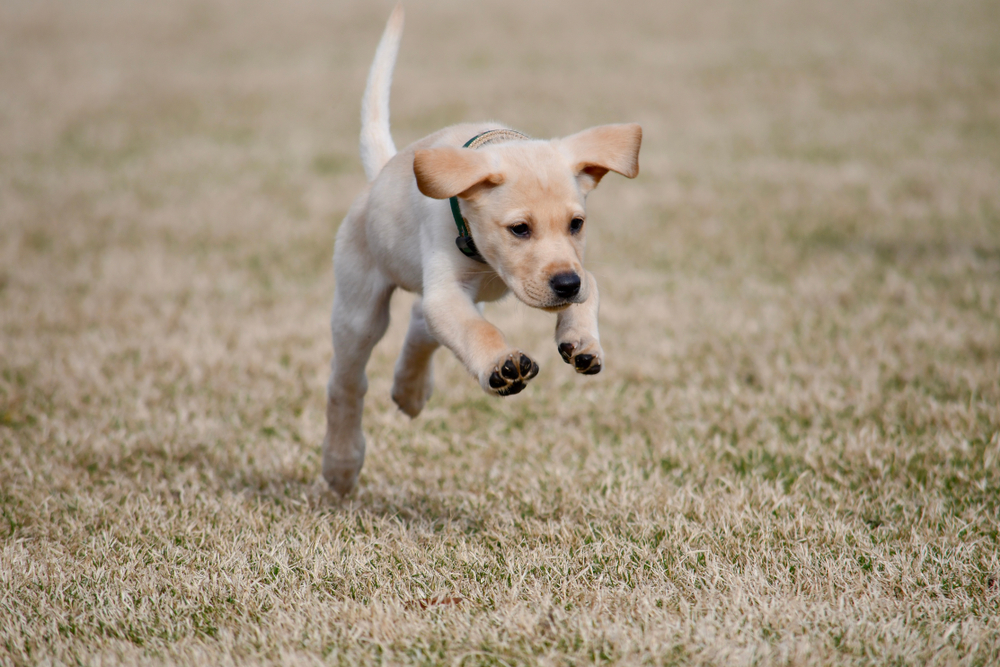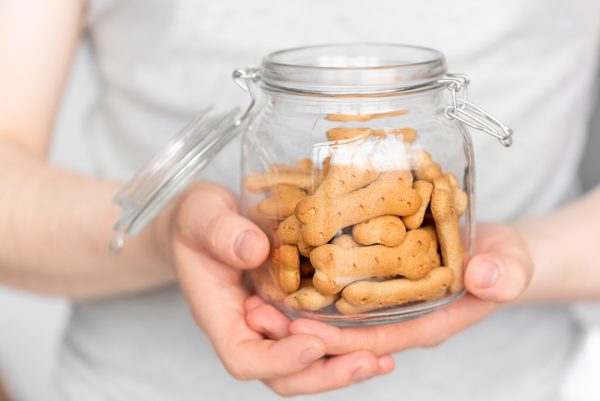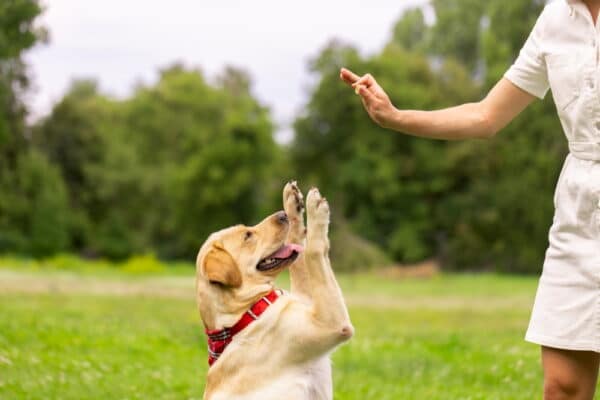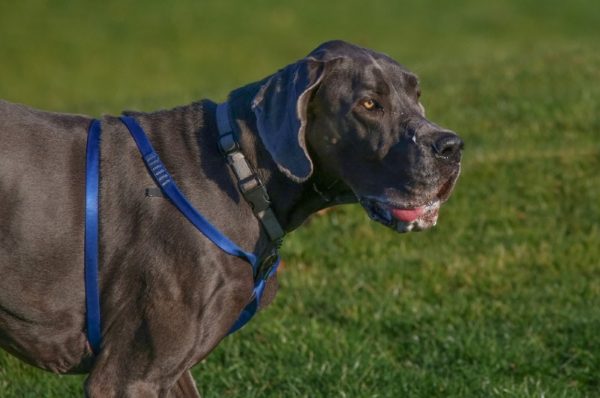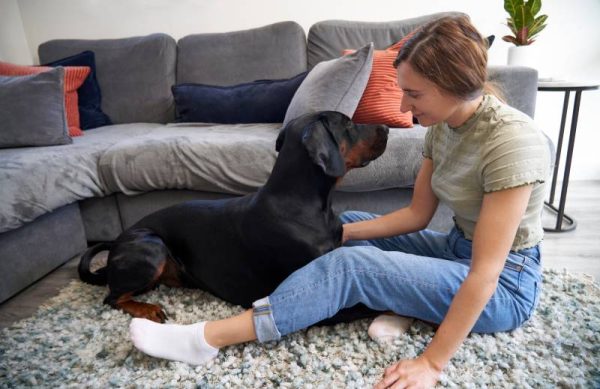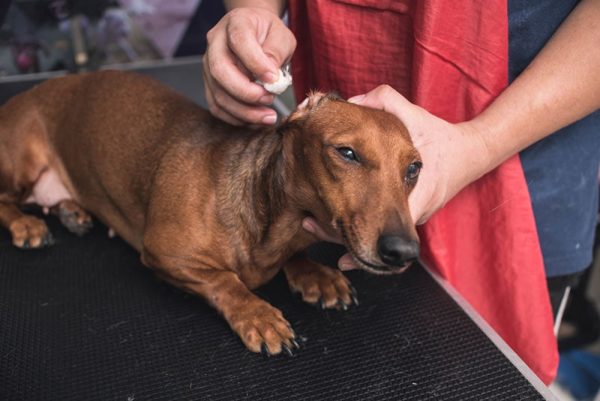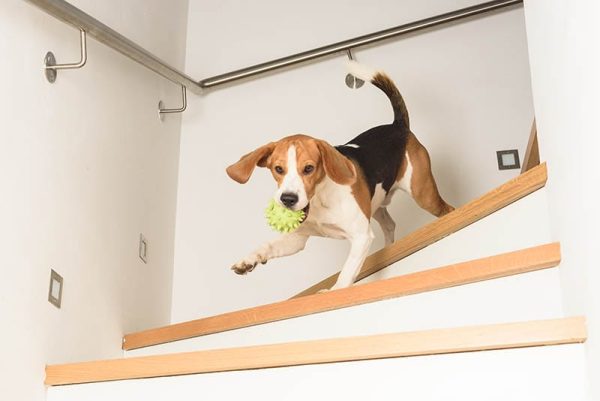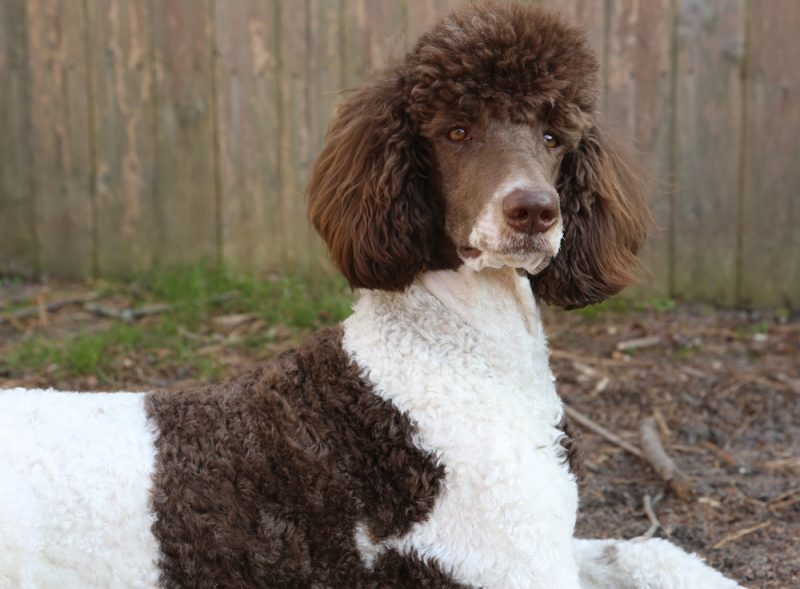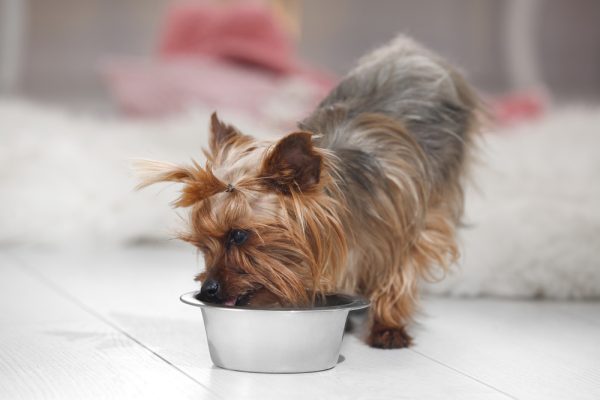In this article
Have you ever witnessed your dear dog jumping like a rabbit? While this could just be silly, exuberant behavior from your beloved pup, unfortunately, there may be a more serious underlying health factor causing the phenomenon.1 Let’s look into what canine health experts think of this somewhat puzzling behavior.

What Is a Bunny Hop?
A bunny hop typically involves both hind legs moving in unison, propelling the dog forward in a series of hops instead of a fluid gait.
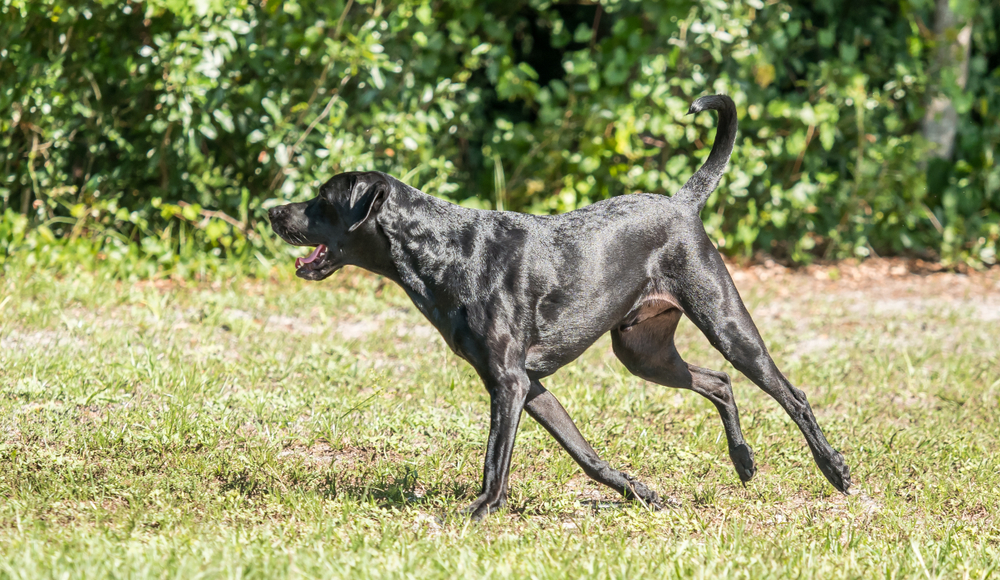
What Does It Mean When a Dog Bunny Hops?
Bunny hopping in dogs is often a sign of hip pain.2 It can be accompanied by other abnormal behaviors, such as difficulty getting up, pain during exercise, less playfulness, and more growling and whining.
In fact, several health conditions could trigger bunny hopping in dogs, ranging from minor discomfort to more serious issues.
1. Musculoskeletal Issue
Dogs might hop like a bunny due to problems with their hind legs. Conditions like hip dysplasia, osteoarthritis or patellar luxation can cause pain and discomfort, forcing the dog to adapt their way of moving.
2. Neurological Disorder
Certain neurological conditions can affect a dog’s coordination and movement, causing them to hop irregularly. Disorders like degenerative myelopathy or spinal cord injuries might lead to an abnormal gait.
3. Behavioral Cause
Sometimes, a dog may hop like a bunny simply out of pure joy. This occurs more commonly in exuberant puppies, but is also not uncommon in dogs running through tall grass. Hopping and pouncing is a great way for them to flush out small animals like rodents. While obviously less concerning than health-related issues, it’s still essential to ensure that your dog isn’t exhibiting this behavior due to underlying pain, especially if occurring regularly.
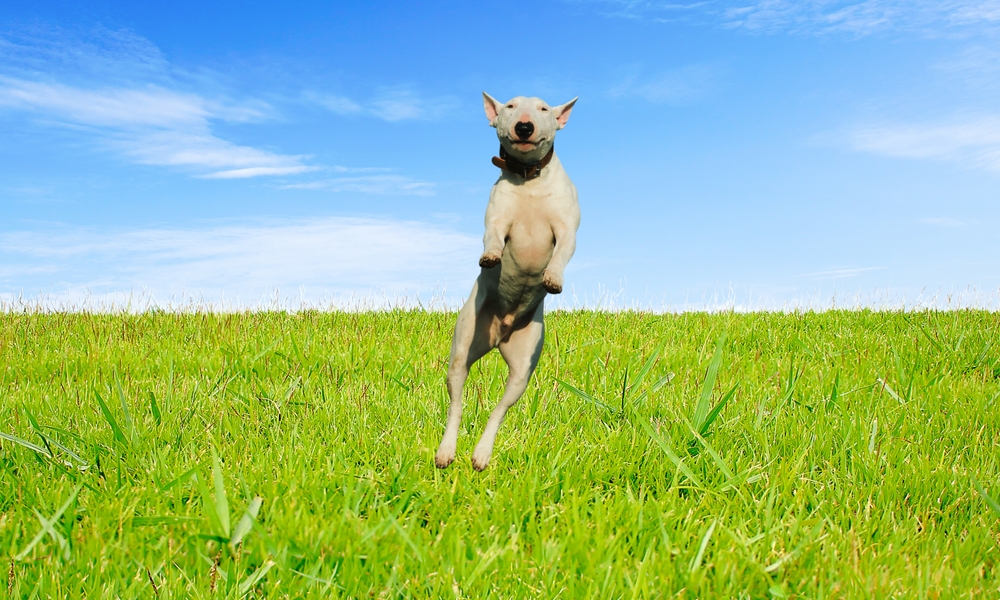

What Are the Possible Long-Term Consequences of Bunny Hopping for Dogs?
Although it may seem cute and harmless, it is not normal for a dog to constantly move around hopping like a rabbit. The abnormal weight bearing and stress on their joints can lead to further inflammation, pain, and reduced mobility.
Frequent bunny hopping can also cause muscle tension or imbalance, particularly in the hindquarters. Over time, this tension can worsen existing problems and possibly lead to other musculoskeletal complications.
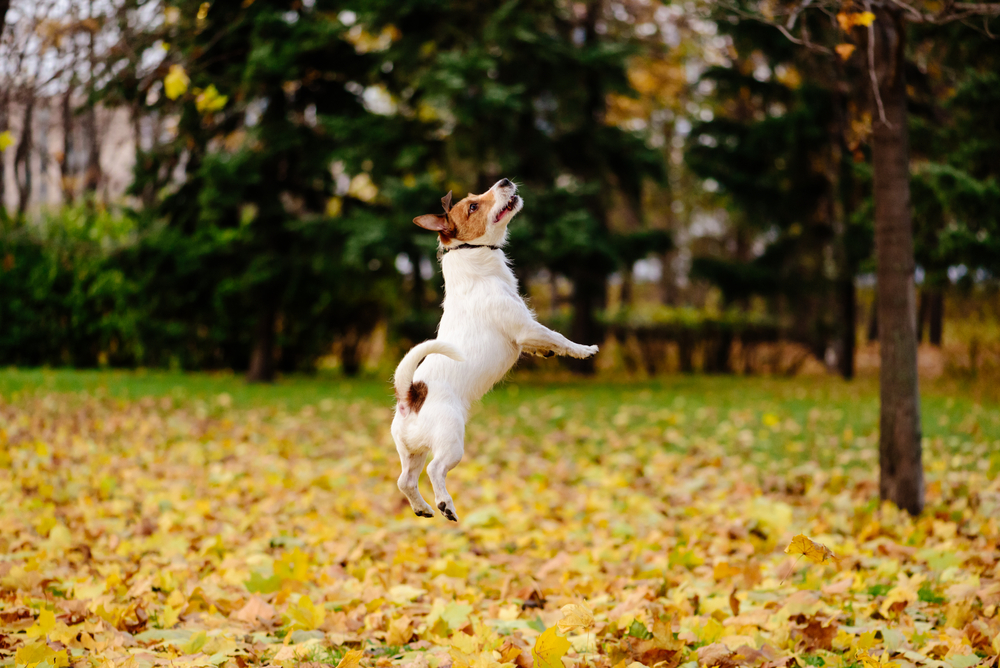
Preventative Measures
To safeguard your dog’s long-term health, and help prevent the onset of bunny hopping behavior or related issues, you’ll need to work alongside a vet.
- Make sure your dog stays at a healthy weight. Obesity places additional strain on a dog’s joints and muscles, increasing the risk of musculoskeletal problems. Ensure that your pup maintains a healthy weight through a balanced diet and regular exercise.
- Don’t skip your daily walks with your pup. Engage your dog in regular, low-impact exercise routines to promote muscle strength, joint flexibility, and overall fitness. Activities like swimming, walking, and gentle play can help maintain mobility and reduce the likelihood of future joint problems.
- Adapt your home. Make a few adjustments to your home to minimize potential hazards and reduce the risk of injury. You should provide non-slip surfaces, secure staircases, and remove obstacles that could impede your dog’s mobility and contribute to bunny hopping.
What to Do If You Are Concerned About Your Dog’s Gait
- Consult a vet promptly. Schedule a trip to a veterinarian for a thorough examination if you suspect any health issues. The vet can conduct tests, such as X-rays or neurological evaluations, to pinpoint the underlying cause of your dog’s bunny hopping.
- Keep a close eye on your dog’s behavior. Note any changes in their mobility, appetite, or demeanor. Documenting these observations can provide valuable information for the vet and aid in diagnosing any underlying conditions.
- Modify their exercise routine. If your dog’s bunny hopping stems from musculoskeletal issues, the vet may advise modifying their exercise routine to reduce strain on their joints. Low-impact activities like swimming or gentle walks can help maintain mobility without exacerbating existing conditions.
- Provide extra comfort and support. Make sure your pup has a comfortable resting area with soft bedding to alleviate any discomfort that they may be experiencing and non-slip flooring or seek advice from the vet about additional measures such as joint supplements.
If you need to speak with a vet but can't get to one, head over to PangoVet. It's our online service where you can talk to a vet online and get the personalized advice you need for your pet — all at an affordable price!

Wrap-Up
While it might make you smile to see your dog hopping like a bunny, you should remain aware that it could indicate something serious. It’s always best to play it safe and get your dog checked out by your vet to check for any musculoskeletal or neurological issues. This will ensure your furry buddy gets the care that they need to keep bouncing joyfully for many years to come.
Featured Image Credit: J. Early, Shutterstock
